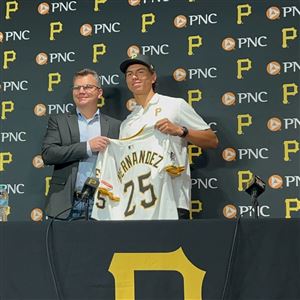Lucky for me, the Society for American Music and the Music Library Association joint conference happening this week and weekend (March 1-4), is located right next door to the Post-Gazette at the Downtown Hilton. So, I have been able to sneak over from time to time to catch some of the papers and presentations. There's so much being offered, it is staggering. But here are some sessions I caught:
 Like many conferences, most of these sessions consist of academics reading papers on music without much real music being heard at all. But an early session on John Cage actually brought some music to the fore, as pianist Margaret Leng Tan performed two works by Cage not heard in years -- one, "Dance to the West," discovered by the charismatic musicologist David Patterson, and "Chess Pieces," "discovered" by curator Larry List.
Like many conferences, most of these sessions consist of academics reading papers on music without much real music being heard at all. But an early session on John Cage actually brought some music to the fore, as pianist Margaret Leng Tan performed two works by Cage not heard in years -- one, "Dance to the West," discovered by the charismatic musicologist David Patterson, and "Chess Pieces," "discovered" by curator Larry List.
I put the latter in quotes because this work was incorporated into a painting Cage did for an exhibition in 1944. He placed notes and staff lines within the squares of a stylized chess board. Everyone who saw it, even Cage experts, thought it was a painting, period. Recently, List apparently just asked why not see if it could be played, and requested Tan, the Cage Trust and his publisher C.F. Peters to make a performing edition of it. Turns out, his hunch was right -- it was a secret piece, hidden in plain sight.
Pretty neat stuff to hear it performed, even if its contrapuntal nature was a bit on the dry and analytical side. I am in the camp that says Cage was more important as a theorist, collaborator (especially with dance) and phenomenon than a composer, and these pieces didn't change that, but it was hard not to be impressed by his dual talents in music and art.
 Poor Wikipedia got a bashing by the librarians in another session. Kent Underwood of New York University spent about 20 minutes showing how vastly inferior it is as a resource than New Grove's Dictionary of Music and Musicians and the Encyclopedia Britannica (imagine that), also outlining how many entries are full of errors.
Poor Wikipedia got a bashing by the librarians in another session. Kent Underwood of New York University spent about 20 minutes showing how vastly inferior it is as a resource than New Grove's Dictionary of Music and Musicians and the Encyclopedia Britannica (imagine that), also outlining how many entries are full of errors.
Look, it is good to let people and students know to double check anything they find in Wikipedia and to look for more context in other sources. But, really, to just bash it seemed a needless excercise.
Far better would be if MLA could figure out how to make the articles more accurate. Maybe get a grant to update them. The bottom line, with 1,000 articles being added each day and with Wiki articles popping up at the top of Google searches, Wikipedia is not only here to stay, it is crushing every database any library has to offer in terms of consumer usage. Better to help it be accurate than to just complain about how bad it is.
More later ...
First Published: March 2, 2007, 5:00 a.m.
















